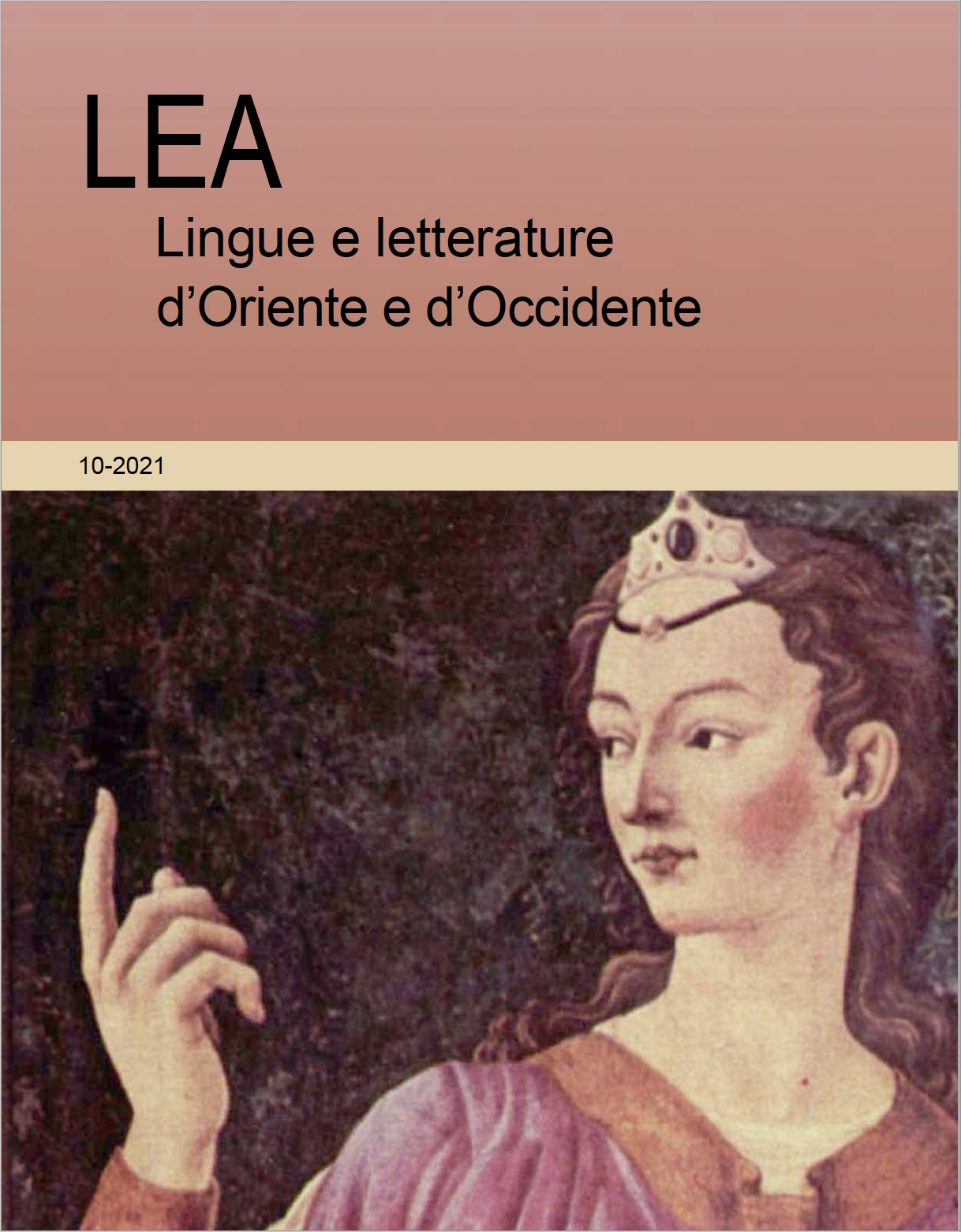Published 2021-12-09
Keywords
- Cosmopolitanism,
- Dispatriation,
- Identity-transformation,
- Poetry,
- Self-knowledge
Abstract
Looking into the literary work of J.P. Hebel through the interpretative lens of dispatrio (translatable as exile, or better by the neologism dispatriation) means placing oneself in both a concrete and metaphorical perspective. Hebel experiences the transfer from Lörrach to Karlsruhe as a real expatriation. The resulting dispatriation is configured as an asylum for poetry, a haven for the poet. In Allemannische Gedichte (Alemannic Poems), Hebel’s dialectal poetry becomes a kind of Sprachheimat (Linguistic Homeland). In Kalendergeschichten (Calendar Stories) the perspective is doubly metaphorical; the narrator, the Hausfreund (The Friend of the Rhenish Families), is a cosmopolitan who continually crosses borders, explores the globe and the universe, and educates the readers to a critical sense against prejudice and superstition. Here dispatriation is understood as a positive response to disorientation, a process of self-knowledge and identity transformation.



